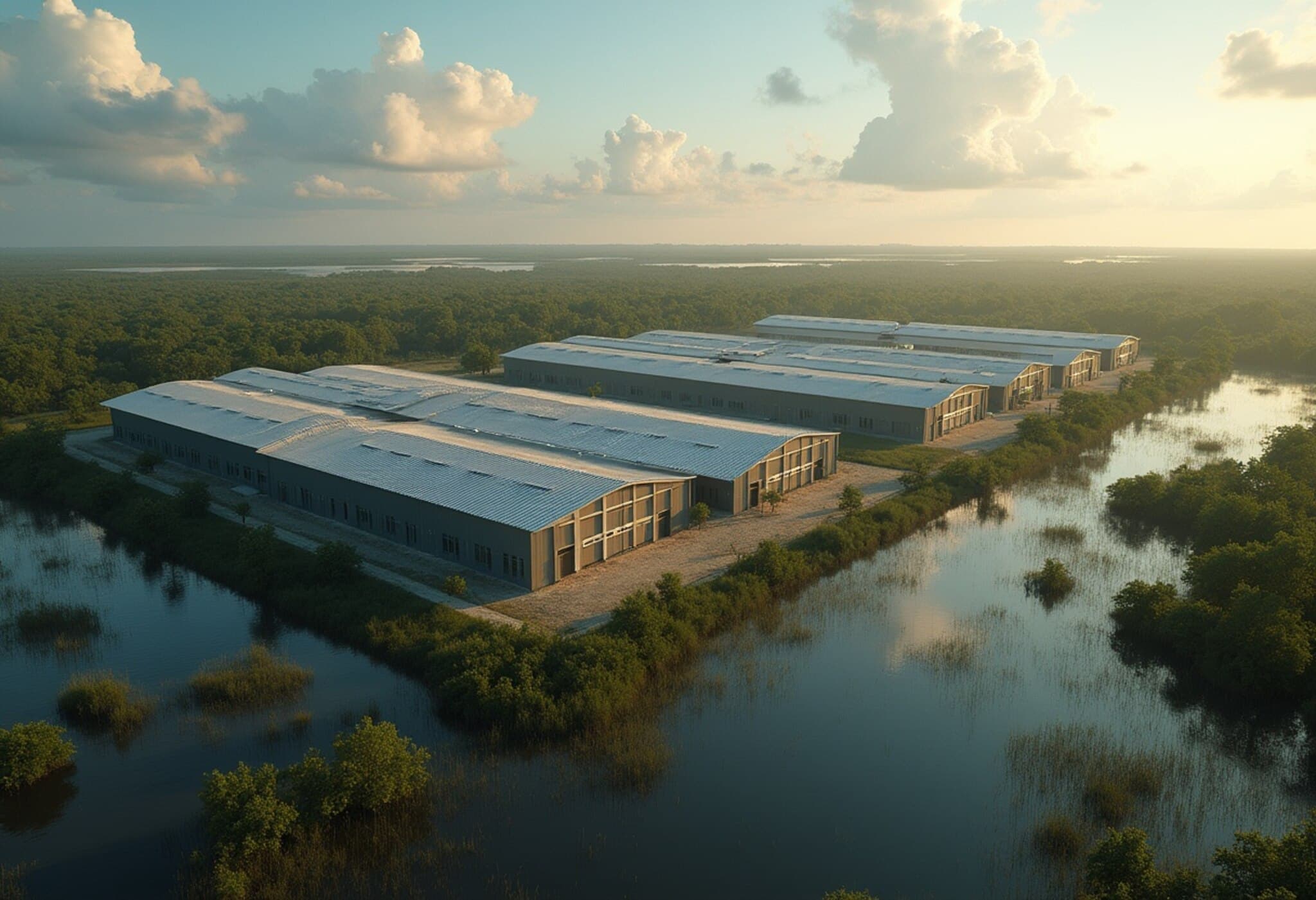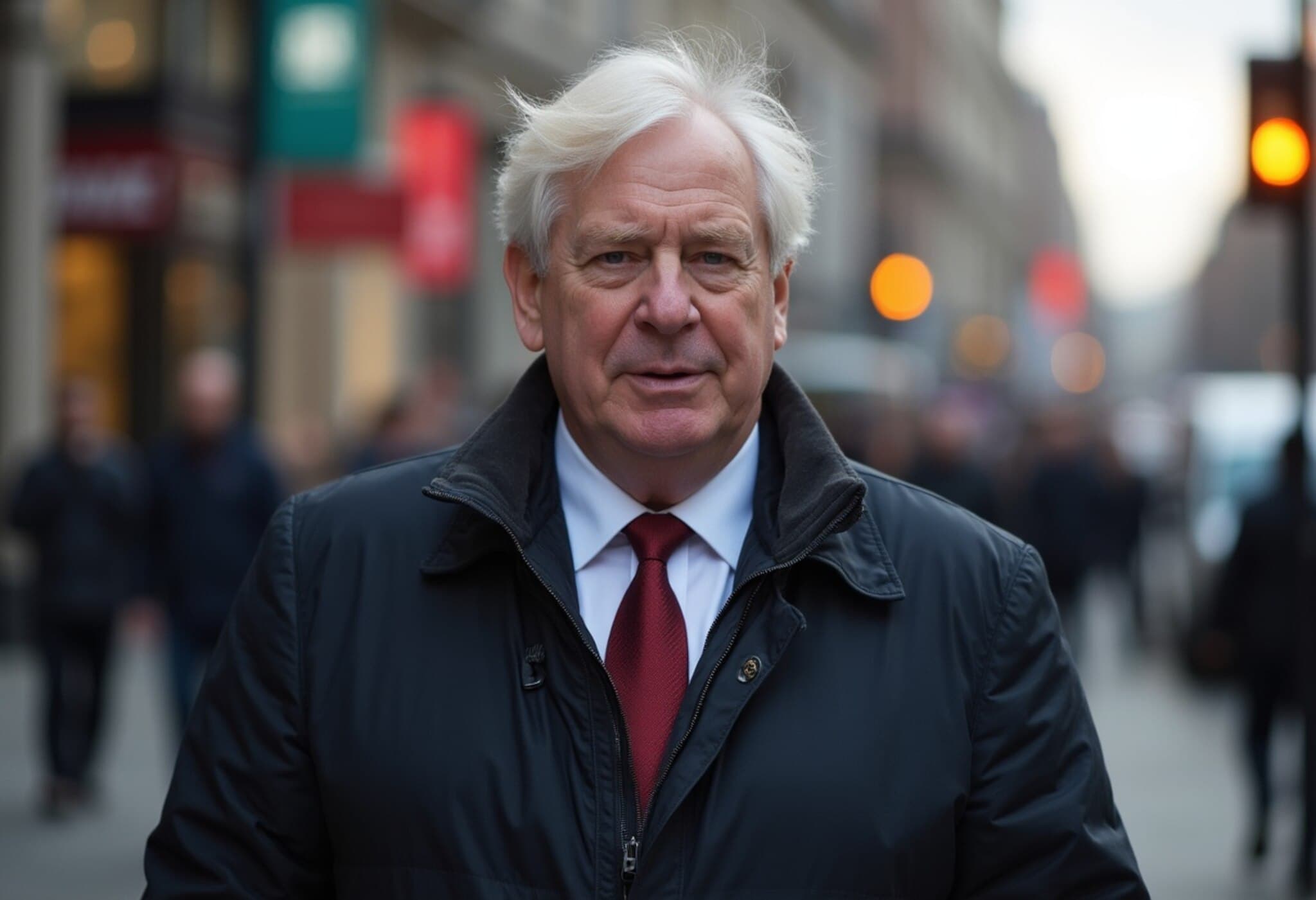Federal Court Shuts Down Controversial Everglades Migrant Facility
In a decisive legal move, a U.S. federal court has ordered the closure of the migrant detention center infamously dubbed “Alligator Alcatraz,” located in Florida’s Everglades. This facility, hastily constructed in just eight days last June, was designed to hold thousands of undocumented immigrants but quickly became emblematic of the Trump administration’s harsh immigration policies and raised serious concerns among environmentalists, human rights advocates, and legal experts.
What Was ‘Alligator Alcatraz’?
Built on an abandoned airfield enveloped by Florida’s vast Everglades wetlands—a habitat teeming with dangerous alligators—the detention center featured makeshift bunk beds, chain-link cages, and large white tents. Homeland Security officials initially planned to house up to 3,000 migrants there.
President Donald Trump himself visited the site last month, touting its severity and chillingly jesting that the alligators could serve as deterrent guards. The White House embraced the nickname “Alligator Alcatraz,” alluding to the notorious San Francisco Bay prison that Trump expressed interest in reopening to combat crime.
The Human Toll Behind the Headlines
Interviews with detainees revealed grim living conditions. Luis Gonzalez, a 25-year-old Cuban migrant held within the facility, painted a disturbing picture, saying, “They don’t even treat animals like this. This is like torture.” He described shared cells confined by chain-link fences, packed with around 30 individuals—evoking the image of a cramped chicken coop rather than a humane detention center.
Environmental and Legal Challenges
Beyond humanitarian concerns, the center faced fierce backlash from environmental groups such as Friends of the Everglades and the Center for Biological Diversity. These organizations filed a lawsuit contending that the facility was set up without the legally mandated environmental impact assessments, threatening the fragile Everglades ecosystem.
District Judge Kathleen Williams, who had already paused construction earlier this month, issued a comprehensive ruling on August 22, 2025:
- Ordered dismantling of most temporary structures within 60 days, including fencing, lighting, generators, and sewage systems.
- Prohibited authorities from transferring any new detainees to the site.
This ruling explicitly targets both the Trump administration and the Florida government under Governor Ron DeSantis, signaling bipartisan environmental and legal accountability.
Political and Policy Implications
The closure of “Alligator Alcatraz” highlights the growing tensions between aggressive immigration enforcement strategies and environmental as well as human rights considerations.
The Trump administration had viewed this site as a prototype for nationwide detention centers aimed at hardening immigration policies. However, the court’s decision underscores the limits of such rapid deployments, especially when established procedural safeguards are bypassed.
Florida’s government has announced its intention to appeal the decision, signaling this legal battle will continue amidst broader debates on immigration reform, border security, and ecological preservation.
Expert Commentary
From a legal standpoint, this case illustrates the critical role of environmental regulations even within the context of national security and immigration enforcement. Rapid policy implementations risk legal setbacks when constitutional and environmental norms are sidelined.
Moreover, experts warn that the treatment of detainees at facilities like “Alligator Alcatraz” risks eroding America’s global human rights standing and undermines ethical responsibilities to vulnerable populations seeking asylum or refuge.
What’s Next?
As the Trump administration and Governor DeSantis deliberate appeals, activists continue to monitor conditions closely while pushing for comprehensive immigration reform that respects legal due process and human dignity.
This case serves as a powerful reminder that sound policy cannot ignore environmental stewardship or fundamental human rights in the pursuit of national security objectives.
Editor’s Note
The rise and fall of “Alligator Alcatraz” encapsulates the fraught intersection of immigration policy, environmental protection, and human rights. As America grapples with these challenging dynamics, policymakers, activists, and the judiciary must work collaboratively to foster solutions grounded in legality, compassion, and sustainability. This development invites us to reconsider: How can we balance border security with America's foundational commitment to human dignity and environmental responsibility?












